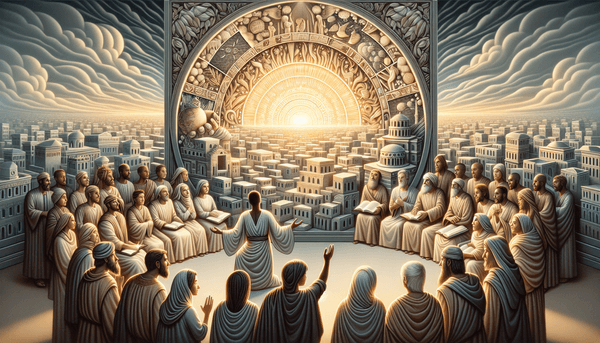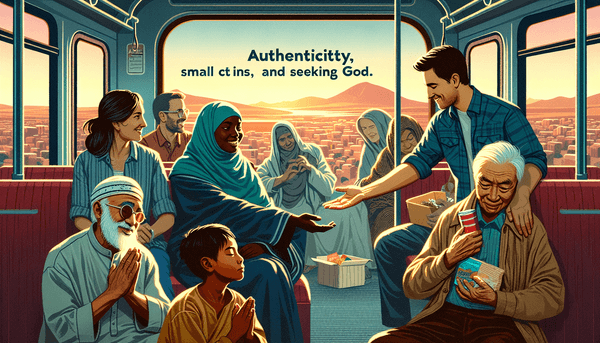The Transformational Impact of the Resurrection on the Disciples and the Early Church
When Jesus rose from the dead, the effect on His disciples was nothing short of transformative. They went from a state of fear and despair to one of unshakeable hope and courage. The resurrection served as a divine affirmation of Jesus' teachings and their faith. It became clear that Jesus was the promised Messiah, and His death on the cross was part of a grander divine plan. The disciples, once cowering in the shadows, now boldly proclaimed the Gospel. As stated in Acts 4:33, 'With great power the apostles continued to testify to the resurrection of the Lord Jesus. And God’s grace was so powerfully at work in them all.' This newfound conviction led to the establishment of the early Church, a community united by the living hope of the resurrection, as 1 Peter 1:3 beautifully articulates.
The Fragmentation of Christianity: Historical and Theological Perspectives
The unity of the early Christian Church was not to last. Over time, significant rifts emerged, leading to the fragmentation of Christianity into various denominations and traditions. One of the most notable divisions occurred in 1054, known as the Great Schism, which separated the Eastern (Orthodox) and Western (Roman Catholic) Churches. The split was rooted in differences over doctrine, ecclesiastical authority, and cultural practices, as well as linguistic divergences between the Latin-speaking West and the Greek-speaking East. Centuries later, the Protestant Reformation further splintered Christianity. Reformers like Martin Luther and John Calvin challenged the teachings of the Roman Catholic Church, leading to the birth of Protestant denominations. Ephesians 4:4-6 reminds us of the early Christian ideal of unity, a vision that many still strive to achieve despite these historical schisms.
Biblical Perspectives on the Sanctity of Life
The Bible speaks volumes about the sanctity of life without directly addressing modern-day controversies such as abortion. Scriptures like Psalm 139:13-16 and Jeremiah 1:5 emphasize God's intimate involvement in the creation of life, suggesting an inherent value and purpose for every individual from conception. Christians are called to protect and honor all life, including the most vulnerable among us. This perspective challenges believers to uphold the sanctity of life while engaging with compassion and empathy in societal debates. The biblical mandate to 'speak up for those who cannot speak for themselves' as stated in Proverbs 31:8, drives the conversation on how Christians should approach the protection of life in both personal convictions and public policies. For a deeper understanding of the biblical narratives that shape these convictions, consider exploring insights from the Great Flood, which further illuminate the complexity of divine judgment and mercy.
FAQ
Q: How did the resurrection influence the early Church?
A: The resurrection had a profound and transformative effect on the early Church. It strengthened the faith of the disciples, confirmed Jesus' teachings, and transformed them from fear to hope and courage. This led to the spread of the Gospel and the establishment of the early Christian communities.
Q: Why is the resurrection central to the Christian message?
A: The resurrection is central to the Christian message because it affirms Jesus as the risen Lord with power over life and death, inspiring the foundational beliefs and evangelistic zeal of the early Church.
Q: What caused the split within Christianity?
A: The split within Christianity, known as the Great Schism, was caused by long-standing differences in doctrine, ecclesiastical authority, and cultural practices between the Eastern and Western Churches. The Protestant Reformation later caused further splits based on theological disputes and the call for reform.
Q: How do Christians view the sanctity of life in relation to biblical teachings?
A: Christians view the sanctity of life through the lens of biblical teachings that emphasize God's role as the creator and giver of life. These teachings encourage believers to protect the vulnerable and uphold the inherent value of every human being, reflecting the love and compassion of Christ.






